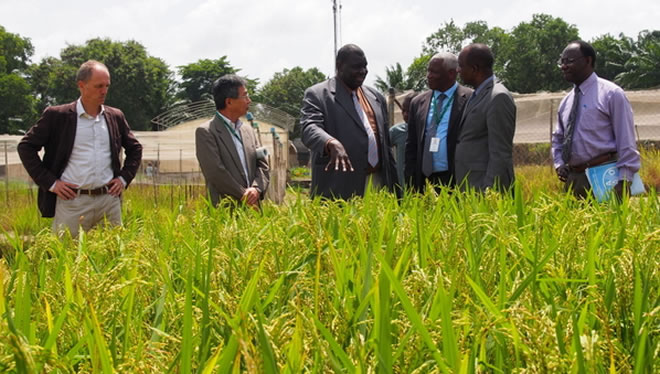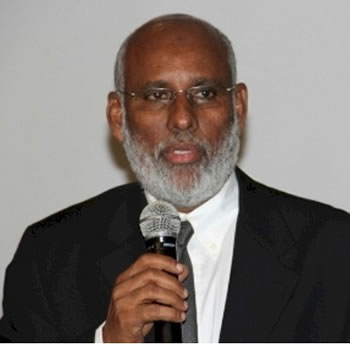
mage credit: R.Raman, AfricaRice

Saturday, January 10, 2015
The comprehensive Programme for Rice Development in Africa was launched at the Partnership Meeting on the Regional Initiative for Rice Development in Africa in Kenya last year (24-25 November).
The meeting was co-organised by the Food and Agriculture Organization (FAO) of the United Nations, AfricaRice and key players in the rice value chain in Africa.
“A major challenge facing the rice sector in Africa in general is the inability of local production to meet the continent’s demands for rice, and the continent continues to rely on importation to meet its increasing demand for the crop,” said Bukar Tijani, FAO Africa regional representative. “We expect this initiative to contribute to reducing high food import bills and impact on small producers.”
Tijani added that the programme will support synergies and the comparative advantages, lessons and experiences of key national and international institutions, and initiatives to promote food securityand rice self-sufficiency in Africa.
Felix Koskei, Kenya’s cabinet secretary for the Ministry of Agriculture, Fisheries and Livestock, urged African countries to tap into the initiative as it will help increase food security and improve livelihoods. “We have common challenges. Thus we need to come together [and] create synergies to eradicate hunger in Africa,” Koskei said.
 Somalia’s minister for agriculture, Abdi Ahmed Mohamed (Baafo) |
The programme will start in 23 countries in Sub-Saharan Africa in partnership with key rice development institutions and organisations in the region such as Benin-headquartered AfricaRice to benefit governmentsand rice farmers across the continent.
Ministers of agriculture from some of the countries that will implement the programme — Benin, Ethiopia, Guinea, Guinea Bissau, Kenya, Senegal, Somalia and South Sudan — endorsed the partnership during the meeting. The ministers said that the programme aims to support translating into action resolutions and commitments made by African governments that adopted the 2014 Malabo Declaration to Ending Hunger in Africa by 2025.
According to the FAO, the first phase of the partnership, which will end in 2019, is estimated to cost US$500 million, with African governments expected to provide the funding.
Lilian Kirimi, a senior research fellow at the Kenya-based Egerton University’s Tegemeo Institute of Agricultural Policy and Development, says the programme will greatly enhance food security in Africa as it emphasises the development and implementation of a holistic approach to sustainable rice systems development in the region.
“To ensure that local production meets consumption needs, this programme should address inefficiencies along the rice value chain, Kirimi told SciDev.Net, citing a issues such as high labour costs, high costs of fertilisers and seeds, changing weather patterns that have reduced the amount of water flowing to irrigation schemes and the high cost of electricity, which impact negatively on businesses related to milling.
This article has been produced by SciDev.Net's Sub-Saharan Africa desk.